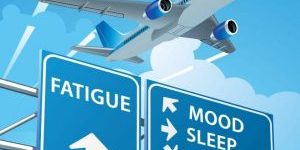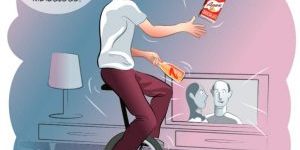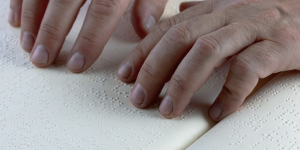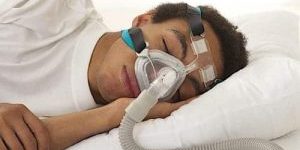Managing mental health with your lifestyle
Iron levels and fatigue
Iron is a mineral. It is necessary to make haemoglobin (an oxygen carrying molecule) in the blood. If iron is not eaten in adequate amounts in the diet; anaemia, tiredness and fatigue will result. People at greatest risk are pregnant and menstruating women, vegetarians and athletes. If you think you may be low in blood……
What causes fatigue?
Fatigue is caused by a range of different factors. It is usually not just one factor but a combination of factors that will explain someone’s fatigue. Being able to characterise the symptoms will enable you to identify the underlying cause/s of your fatigue and take action to increase your fatigue resistance. The Fatigue Cause Model……
Should burning fat kilojoules be my goal?
NO – burning energy whatever its source should be the major goal of exercise when trying to lose body fat. The reason is that 37,000 kilojoules of energy equals one kilogram of fat. So if we eat an extra 37,000 kilojoules in a week we would gain a kilogram and if we eat 37,000 fewer……
Building fatigue resilient workplaces
Imagine being able to do everything in your working and personal life without thinking: “I don’t have the energy to do this”? The good news is that you can take steps to be more fatigue resistant…most of the time.Building fatigue resistance is like completing a puzzle each day. Think for a minute what makes completing……
Managing mental health with your lifestyle
A healthy lifestyle is paramount for the treatment and prevention of mood disorders. Healthy lifestyle includes a combination of healthy eating, regular exercise and reduced alcohol consumption. Lifestyle changes help to relieve the symptoms and may even prevent mood disorders. Exercise The therapeutic benefits of exercise include boosting confidence and self-esteem, relieving muscular tension, promoting……
Exercise and physical activity. How to finding the balance
Active living is a way of life in which physical activity and exercise are valued and integrated into daily life in a fun and enjoyable way. In other words, seeing physical activity as an opportunity not a chore. Remember being busy does not necessarily mean that you are active! Physical activity is any body movement……
Assessing your Fatigue
Your personal safety, and the safety of those around you, is dependent on three factors when it comes to fatigue: recognition that you are feeling fatigued;understanding the potential consequences of an accident whilst doing the task; andtaking action to manage your fatigue. You may be able to do some tasks during times of fatigue if……
The impacts on circadian rhythm and melatonin production in visually impaired people
Light is captured through photoreceptors in the eyes which transmit this to the suprachiasmatic nucleus (SCN), or internal body clock, via a dedicated neural pathway. Each day the light-dark cycle resets the internal clock, which in turn synchronizes physiological and behavioural patterns known as our circadian rhythms. People who are visual impaired with no perception……
Sleep Disorders
It is estimated that 6% of the population suffer from sleep disorders. Sleep disorders may make some health conditions worse such as, heartburn, depression, asthma and heart disease. Sleep disorders are diagnosed by a GP or sleep specialist. If you are experiencing poor sleep and have some of the following symptoms, you may want to……
Smoking and sleep
Nicotine can hamper a person’s ability to fall asleep or get good quality sleep. Studies have shown that the average smoker gets 30 minutes less sleep compared to non-smokers. Trouble getting to sleep after a cigarette is likely due to the stimulatory effect of nicotine. Nicotine withdrawal during later sleep periods may also affect sleep……










